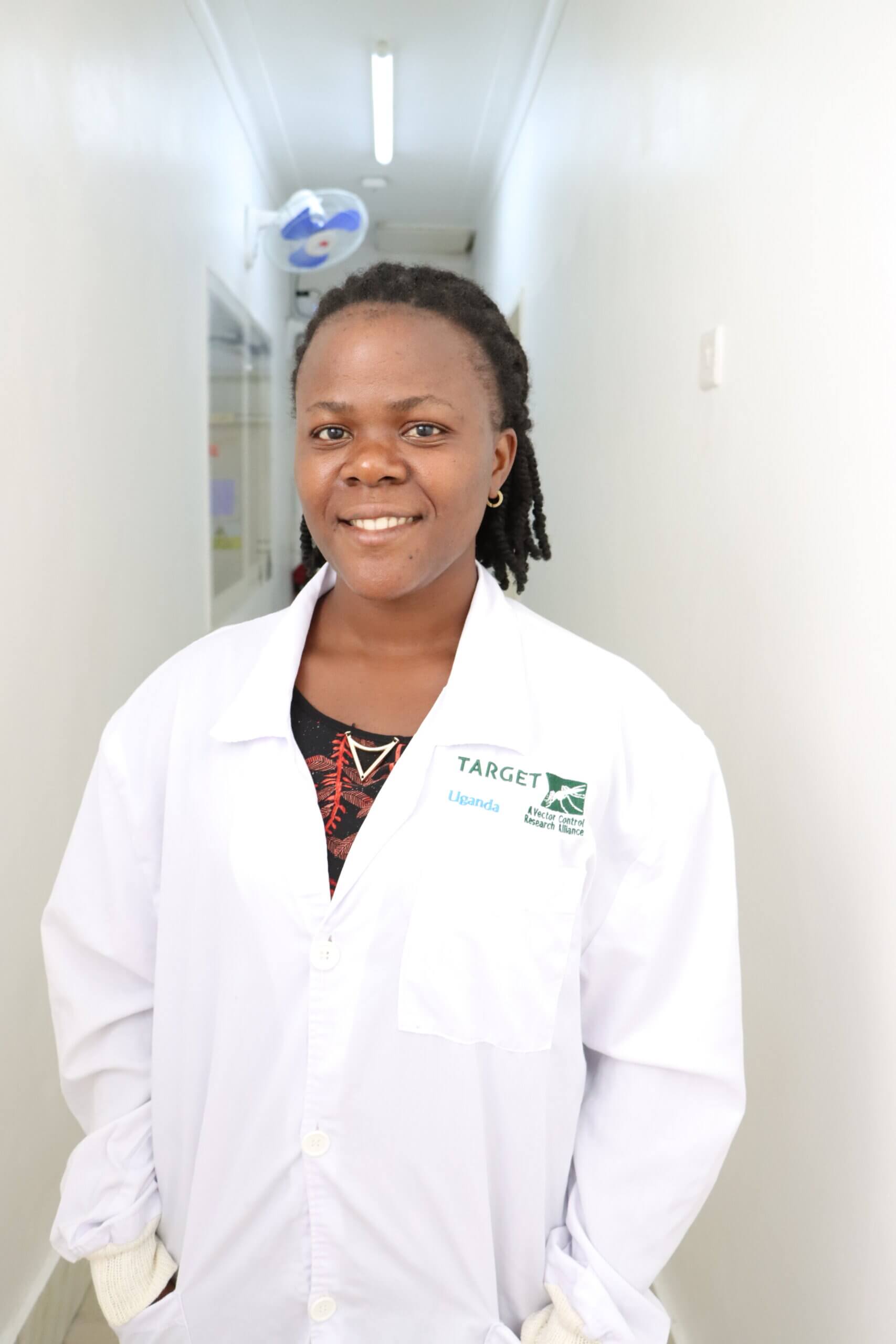What do you do with Target Malaria, and what do you enjoy about your work?
As an insectary assistant at the Target Malaria Insectary at the Uganda Virus Research Institute, I am captivated by the fascinating transformation of Anopheles mosquitoes. The aquatic stages, with their wriggling movements in the water, are particularly intriguing to me. I find great joy in observing their morphogenesis, a remarkable process where they metamorphose into entirely different adult forms.
What motivated you to enter this line of work?
Growing up in Uganda, malaria was a prevalent disease which claimed many lives. Among my six siblings, I was the most frequently ill with malaria before the age of five. This personal experience sparked a profound interest in biology, behavior, and management of malaria vectors, fueling my passion for malaria research.
Who are you inspired by?
I am inspired by both senior and junior scientists, especially entomologists and genetic biologists who are deeply passionate about their work. By exploring the biology, behavior, and genetic make-up of malaria vectors, they are dedicated to finding innovative solutions for malaria control and prevention.
Do you have any advice for other Young Scientists?
I advise young scientists to stay current with the latest scientific discoveries and technologies as malaria research is constantly evolving.
What does a day in the lab/field look like for you? What’s your favorite task to do in the lab or wherever you work?
A typical day in the insectary involves various activities related to the care and maintenance of mosquito colonies. As I work toward my bachelor’s degree in zoology, I have cultivated a keen interest in identifying knowledge gaps in mosquito care and maintenance research. I aim to develop innovative solutions and draw evidence-based conclusions to address these gaps.

